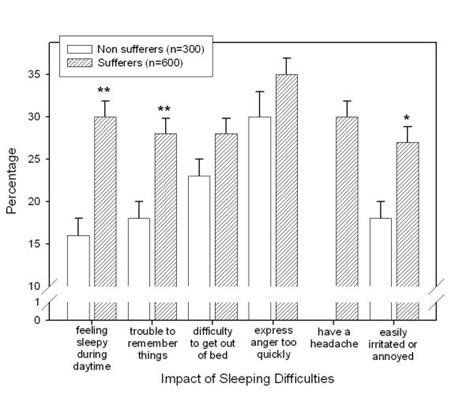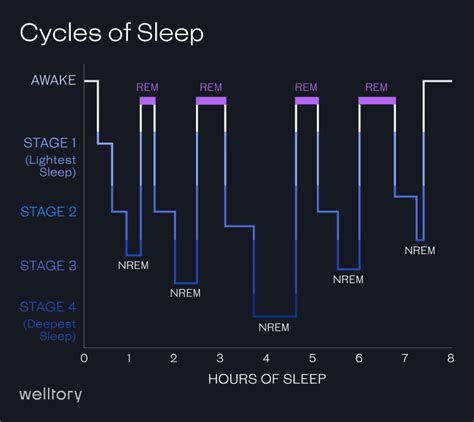How does inconsistent sleep quality specifically impact men’s strength gains?

The Underrated Pillar of Strength: Sleep Consistency
For men dedicated to building strength, the focus often lies on lifting heavy, proper nutrition, and meticulous programming. However, one critical factor frequently overlooked, especially in its inconsistency, is sleep quality. It’s not just about getting enough hours; it’s about the consistency and depth of those hours. Inconsistent sleep patterns can subtly yet profoundly undermine a man’s efforts to pack on muscle and increase strength.

Hormonal Disruption: The Core Problem
One of the most direct and significant impacts of inconsistent sleep on men’s strength gains is its detrimental effect on hormone regulation. Testosterone, the primary male sex hormone, plays a crucial role in muscle protein synthesis, bone density, and overall energy levels. Studies consistently show that even short periods of sleep deprivation can significantly reduce testosterone levels, especially in younger men. When sleep is consistently inconsistent – fluctuating in duration and quality – the body struggles to maintain optimal hormonal balance.
Beyond testosterone, inconsistent sleep also impairs the release of growth hormone (GH), which is vital for muscle repair, fat metabolism, and recovery. The largest pulse of GH secretion occurs during deep sleep stages. Erratic sleep patterns prevent the body from reaching these critical stages reliably, leading to reduced GH output. Conversely, cortisol, a stress hormone, tends to rise with insufficient sleep. Elevated cortisol can promote muscle breakdown (catabolism) and hinder the anabolic processes necessary for strength gains, effectively working against your training efforts.
Impaired Recovery and Muscle Repair
Strength training places significant stress on muscles, causing microscopic tears that the body then repairs and rebuilds stronger. This repair process predominantly occurs during sleep. During deep sleep, the body increases blood flow to muscles, delivering oxygen and nutrients, and protein synthesis accelerates. Inconsistent sleep quality means this vital recovery window is often cut short or disrupted.
Without adequate and consistent recovery, muscles don’t fully repair, leading to accumulated fatigue, reduced performance in subsequent workouts, and an increased risk of injury. It’s like trying to build a house without letting the cement dry – the foundation remains weak, and progress is unsustainable. For men aiming for progressive overload, consistent muscle repair is non-negotiable.

Central Nervous System (CNS) Fatigue and Performance Decline
Strength isn’t just about muscle; it’s also about the brain’s ability to recruit and coordinate those muscles. The Central Nervous System (CNS) plays a pivotal role in initiating muscle contractions, regulating force output, and maintaining focus during training. Inconsistent and poor sleep quality leads to CNS fatigue, even if your muscles feel somewhat recovered.
Symptoms of CNS fatigue include decreased motivation, slower reaction times, reduced coordination, and a diminished ability to generate maximal force. This translates directly to poorer gym performance – lower reps, less weight lifted, and an inability to push through plateaus. Over time, chronic CNS fatigue from inconsistent sleep can lead to overtraining symptoms and a plateau or even regression in strength gains, despite consistent training volume.
Diminished Energy and Training Quality
It goes without saying that inconsistent sleep leaves you feeling tired. This chronic fatigue significantly impacts the quality and intensity of your workouts. When you’re fatigued, your willingness to push harder, maintain proper form, and complete your sets with intention diminishes. Reduced focus and motivation can lead to shortcuts in training, half-hearted efforts, and a higher risk of injury due to compromised technique.
Furthermore, inconsistent energy levels make it difficult to adhere to a strict training schedule. Missed workouts or less effective sessions directly impede progressive overload, which is the cornerstone of strength development. For men striving for peak performance, consistent high-quality training is essential, and that starts with consistent high-quality sleep.

Strategies for Consistent Sleep to Maximize Gains
Recognizing the profound impact of inconsistent sleep is the first step. Implementing strategies to improve sleep consistency is the next. Here are practical tips:
- Establish a Routine: Go to bed and wake up at roughly the same time every day, even on weekends. This helps regulate your body’s natural circadian rhythm.
- Optimize Your Sleep Environment: Ensure your bedroom is dark, quiet, and cool. Blackout curtains, earplugs, or a white noise machine can be beneficial.
- Limit Screen Time: Avoid electronics (phones, tablets, computers) for at least an hour before bed. The blue light emitted by screens can interfere with melatonin production.
- Watch Your Diet: Avoid heavy meals, excessive caffeine, and alcohol close to bedtime.
- Regular Exercise: While strength training is great, ensure you’re also getting regular physical activity, but avoid intense workouts too close to sleep.
- Manage Stress: Practice relaxation techniques like meditation, deep breathing, or reading to calm your mind before sleep.

Conclusion: Prioritize Sleep for Peak Strength
For men committed to maximizing their strength gains, consistent, high-quality sleep must be viewed not as a luxury, but as an indispensable component of their training regimen. By understanding its impact on hormones, recovery, CNS function, and overall training quality, it becomes clear that prioritizing sleep consistency is just as crucial as the reps, sets, and calories consumed. Integrate good sleep hygiene into your daily routine, and you’ll unlock a new level of performance, recovery, and ultimately, sustainable strength progress.









